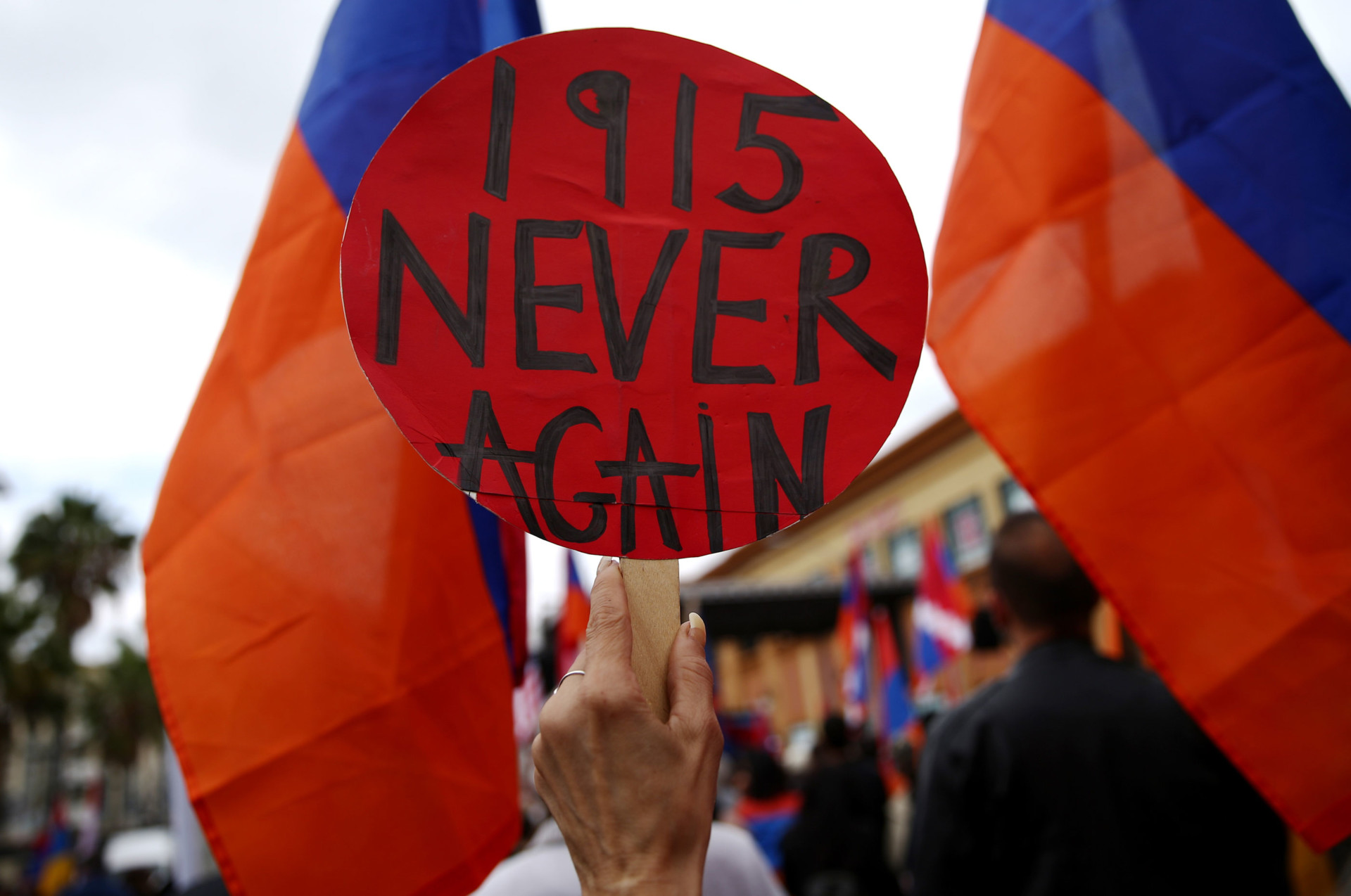Our Week in Review, a newsletter emailed to subscribers every Friday.
To subscribe, sign up here.
The closing line in the film “Schindler’s List” should be familiar to many Muslims. As Oskar Schindler prepares to flee from the advancing Allied forces, the Jews he saved present him with a ring bearing an engraving from the Talmud: “Whoever saves one life saves the world entire.”
It is a signifier that one can never repay the debt of life. There is a similar line in the Quran: “Whoever saves a life it is as though he had saved all mankind.”
The White Helmets in Syria, the brave volunteers who waded into the midst of air raids and artillery strikes to save people from the rubble, adopted it as their motto. I heard this verse as a child when I asked my parents why they chose medicine as their vocation.
That verse echoed through my mind as I read the piece we published this week in New Lines by Ümit Kurt, a historian of the modern Middle East and Polonsky Fellow at the Van Leer Jerusalem Institute. The piece profiled Ottoman naval Lt. Cemil Bahri Kunneh, whom the essay dubbed the Ottoman Schindler, and who saved around 2,000 Armenians from deportation and certain death during the genocide in 1915-1917.
Kunneh was born in Aleppo in 1892. His father was from the village of Kurdan in Jendires, a Kurdish settlement unit that is part of the Afrin region located in the northwest of the Syrian province. His mother, Emine Ali, was from Hopka, a village connected to the Rajo region. Kunneh was 4 when his father died, and his mother raised him by herself.
In 1912, with the outbreak of the Balkan Wars, Kunneh was enlisted in the Ottoman army and rewarded for his bravery in battle. He was later assigned to Birecik, part of Urfa, in the Great War as the Armenian deportation and genocide ensued. There, he served as the manager of a maritime workshop, building military transport vessels for Turkish troops on the Euphrates River.
It was there that Kunneh’s most enduring legacy was forged. He employed many Armenians who were destined for exile and certain death as they marched through the Syrian desert, where around a million people died. Kunneh continued to do so despite a standing order from the ruling Committee of Union and Progress (CUP) to execute any Muslims who protected the Armenians. Later, when Allied forces occupied Turkey after the war and pledged to pursue the war criminals who had ordered and abetted the genocide, the Armenians he rescued wrote a letter testifying to Kunneh’s bravery in protecting them.
Little is known of Kunneh’s heroism today because the genocide is mired in controversy in Turkey. And he was a hero. Kunneh chose to not participate in this collective crime and not share complicity. He resisted group pressure, fear of ostracization and even death, and the imperative to obey authority and the orders of his superiors. But there are no movies or books commemorating his deeds.
What inspires ordinary people to such acts of courage? Kurt looks for some clues in Kunneh’s background as a Kurdish Arab, a member of an ethnic minority himself. Kunneh married Dikranuhi Gullizian, whose father, a prominent clergyman in the Aintab Armenian community, and sister were victims of the genocide. Kunneh met Dikranuhi at the start of the genocide when deportations were underway. She was fleeing with her mother and younger sister first to Cerablus (now named Karkamış) and eventually ended up in Birecik. Dikranuhi encouraged Kunneh to hire numerous Aintab Armenians, including Hagop Muradian, at the workshop in Birecik.
Kurt adds: “His Kurdish Arab ethnic background also likely played a pivotal role in his efforts to rescue the Armenians under his jurisdiction. Historically, Ottoman Kurds and Arabs were oppressed and treated unequally by the central authorities within the empire vis-a-vis Turkish people in numerous eastern, southeastern and Arab provinces. This created a sense of sympathy and empathy among these two ethnic groups toward Armenians. Kunneh was affected by that.”
It is gratifying to read about such courage and heroism under duress. Whatever the impetus, odes should be sung for it in celebration. Kunneh, like Schindler, is the personification of the better angels of our nature.
Through the lives he saved, he also saved humankind.
From this week (March 28 – April 1, 2022)
In Kurdish Turkey, the Birds Have a Hotel | Read more
Podcast | The Middle East in the Midst of the Ukraine War | Listen here
A Rural Crime Wave in Nigeria | Read more
Simplistic Reporting on Arab Leaders Can Do More Harm Than Good | Read more
Lviv Prepares for More War While Sheltering Refugees | Read more
Inside Ukraine’s Psyops on Russian and Belarusian Soldiers | Read more
Restoring Glory to a Baltimore Neighborhood | Read more
The Saudis’ Religious Legacy | Read more
A Schindler for the Armenians | Read more



